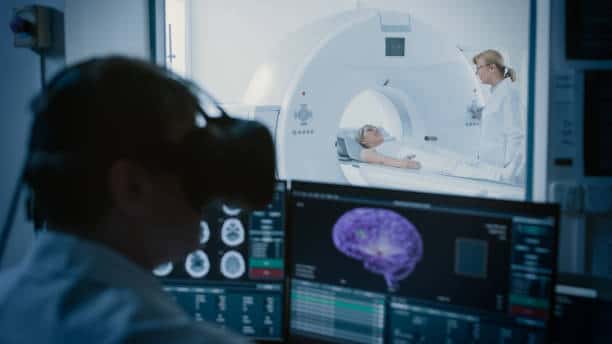With Chronic Traumatic Encephalopathy (CTE) diagnosis rates increasing rapidly and as we become more aware of the condition, particularly being brought to the forefront with international rugby players, Dr Emer MacSweeney, CEO and Consultant Neuroradiologist at Re:Cognition Health explains everything we need to know about CTE from signs and symptoms through to diagnosis, treatment and prevention:
What is CTE?
CTE is a type of progressive brain disease caused by repeated sub-concussive blows to the head and a series of sub-concussions, which can largely go unnoticed. This type of brain injury was formally acknowledged by the NFL in American football players, but it is being increasingly associated with professional rugby and football players. CTE leads to progressive neurodegenerative disease, resulting in dementia.
What are the symptoms of CTE:
Related physical and cognitive symptoms of CTE can include memory problems, a decline in thinking ability, confusion, aggression, depression and changes in personality; all of which can be debilitating and life-changing for those affected. Anybody who is experiencing these symptoms or is at all concerned about CTE should seek a diagnosis at the earliest opportunity.
How is CTE diagnosed?
Using this new Diffusion Tensor Imaging (DTI), scans of the brain in conjunction with MRI, specialist clinical evaluation, cognitive assessments and other tests, Re:Cognition Health has been able to identify, objective evidence of chronic and progressive brain injury.
Who is at risk of CTE:
It has been recognised for many decades that contact sports such as boxing, rugby and football can lead to chronic progressive brain damage, neurological symptoms and eventually dementia.
What can be done to prevent CTE?
There are inexpensive interventions to reduce the number and force of both concussive and sub-concussive impacts that can be worn by players and there are many new interventions underway, including a new 2022 production Rezon Halos, the only legal CE marked protective headwear product in UK and Europe. Rezon’s headband reduces the transmission of critical and dangerous rotational forces to the brain by at least 60%.
Re:Cognition Health supports the notion that drastic action needs to be taken by governing bodies to change the way contact sports players are informed of the risks, and protected during play, in addition to how players are monitored in order to direct protective mechanisms to reduce the risk of developing chronic brain disease.
What treatments are available for CTE?
Unfortunately, at present there is no cure for CTE, however, there is a promising new-generation medication HMTM developed by TauRx Therapeutics, as a potential new treatment for Alzheimer’s, to halt the progression of the disease.
Dr MacSweeney’s team at Re:Cognition Health is currently the first in the world known to be providing this anti-tau medication, HMTM, with the intention to ideally halt or at least slow the progression of CTE in those affected. HMTM works by preventing the spread of tau protein in the brain and thereby mitigating against accelerated destruction of previous cognitive brain cells.
Watch Dr MacSweeney TEDx talk on CTE: https://www.youtube.com/watch?v=QXn-okL2rfs
 Visit our USA website
Visit our USA website





